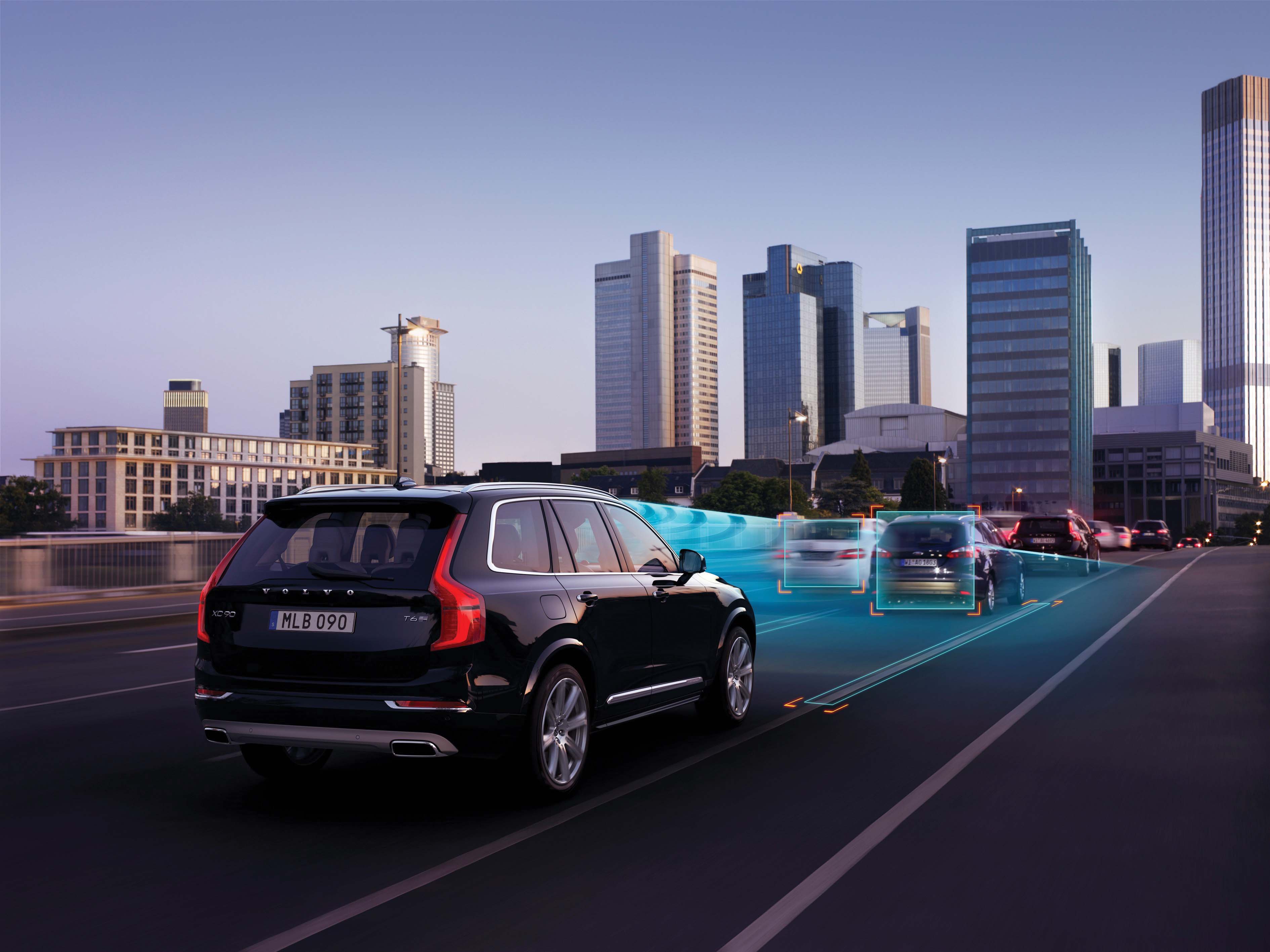ZF TRW has demonstrated its semi-automated driving capabilities at a test track event in Berlin, Germany. The vehicle has a 'Highway Driving Assist feature which can enable automatic steering, braking and acceleration for highway speeds above 40 kph.
The demonstration vehicle integrates ZF TRW's AC1000 radar and S-Cam 3 video camera sensor together with its electrically powered steering belt drive (EPS BD) and electronic stability control EBC 460 – the combination of adaptive cruise control (ACC) and lan
ZF TRW has demonstrated its semi-automated driving capabilities at a test track event in Berlin, Germany. The vehicle has a 'Highway Driving Assist feature which can enable automatic steering, braking and acceleration for highway speeds above 40 kph.
The demonstration vehicle integrates ZF TRW's AC1000 radar and S-Cam 3 video camera sensor together with its electrically powered steering belt drive (EPS BD) and electronic stability control EBC 460 – the combination of adaptive cruise control (ACC) and lane centring assist (LCA) functionalities. The ACC keeps the vehicle at a set speed until a slower vehicle appears in front or if another car cuts across the lane. It then automatically brakes and/or accelerates the vehicle to keep a driver-selected safe gap (constant time interval) behind the slower vehicle. At the same time, the forward looking camera tracks the lane markings to keep the car in the centre of the lane via the electric steering system. The driver can easily override the system at any time.
Peter Lake, executive vice president, Sales and Business Development at ZF TRW commented: "We're following a building block approach to automated driving functions showcasing what is achievable today using proven technology. Drivers will need to trust the technology and see its benefits as we move along a continuum to higher degrees of automation leading to more convenience and the ultimate goal, safer vehicles and roadways."
Lake continued: "The prototype vehicle represents a milestone in systems integration – one of ZF TRW's core capabilities as the only complete safety systems supplier worldwide. The beauty of these technologies is their flexible or scalable nature – the same sensing hardware can be used for different functions to suit vehicle manufacturer requirements. For example, the driver assist hardware on the vehicle could also enable Emergency Steering Assist functionality.
"At a later stage, we'll be showcasing a 360 degree sensor system which will also enable vehicles to automatically overtake (lane change control). The next decade represents a huge opportunity to improve not only the driving experience, but fundamentally road safety."
The demonstration vehicle integrates ZF TRW's AC1000 radar and S-Cam 3 video camera sensor together with its electrically powered steering belt drive (EPS BD) and electronic stability control EBC 460 – the combination of adaptive cruise control (ACC) and lane centring assist (LCA) functionalities. The ACC keeps the vehicle at a set speed until a slower vehicle appears in front or if another car cuts across the lane. It then automatically brakes and/or accelerates the vehicle to keep a driver-selected safe gap (constant time interval) behind the slower vehicle. At the same time, the forward looking camera tracks the lane markings to keep the car in the centre of the lane via the electric steering system. The driver can easily override the system at any time.
Peter Lake, executive vice president, Sales and Business Development at ZF TRW commented: "We're following a building block approach to automated driving functions showcasing what is achievable today using proven technology. Drivers will need to trust the technology and see its benefits as we move along a continuum to higher degrees of automation leading to more convenience and the ultimate goal, safer vehicles and roadways."
Lake continued: "The prototype vehicle represents a milestone in systems integration – one of ZF TRW's core capabilities as the only complete safety systems supplier worldwide. The beauty of these technologies is their flexible or scalable nature – the same sensing hardware can be used for different functions to suit vehicle manufacturer requirements. For example, the driver assist hardware on the vehicle could also enable Emergency Steering Assist functionality.
"At a later stage, we'll be showcasing a 360 degree sensor system which will also enable vehicles to automatically overtake (lane change control). The next decade represents a huge opportunity to improve not only the driving experience, but fundamentally road safety."








